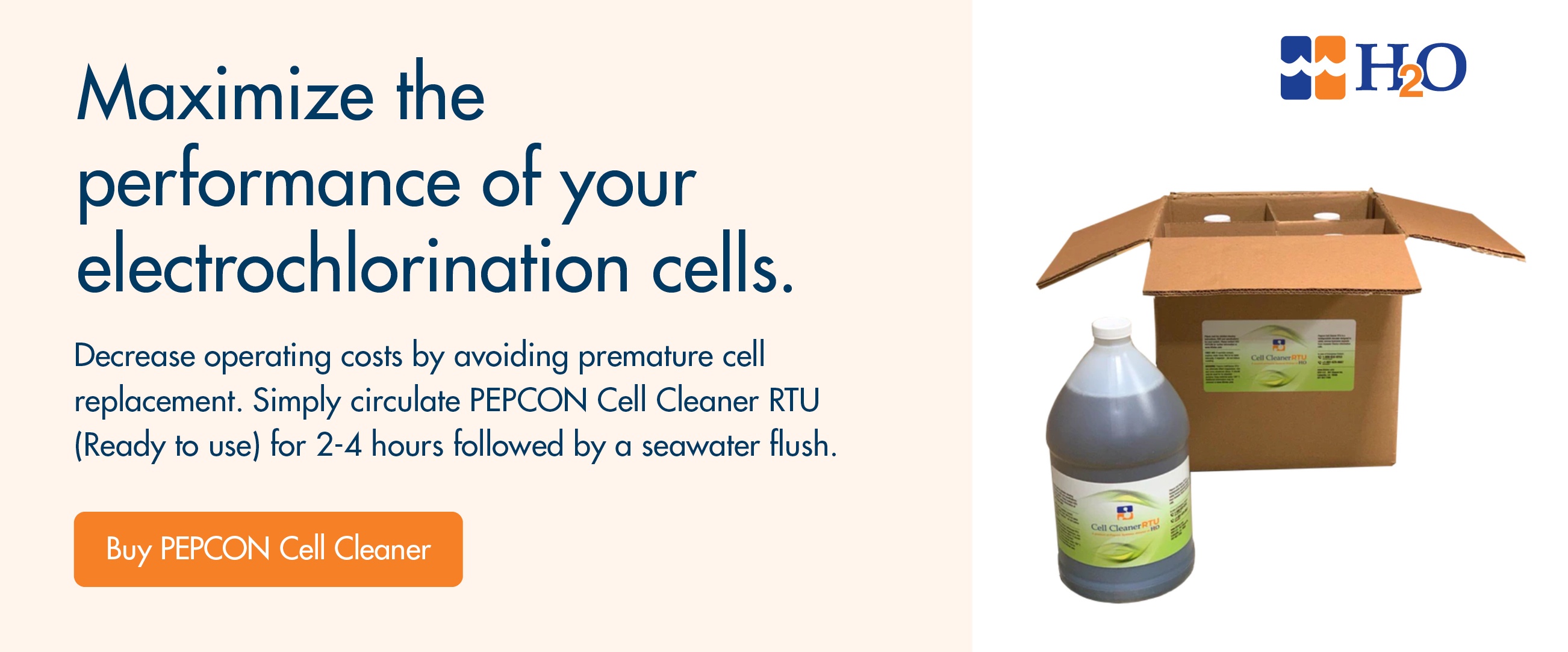%20(1)-1.jpeg?width=1200&name=GettyImages-513229796%20(1)%20(1)-1.jpeg)
Water, water, everywhere: When you’re at sea, one of the most precious commodities you need to produce and protect is, somewhat ironically, clean water. Your offshore rig or vessel depends upon disinfected, pure seawater to keep all of your seawater utility systems running safely and efficiently. One way to ensure effectiveness and efficiency is to reduce or prevent any instances of biofouling in your rig’s seawater utility systems.
Your vessel’s electrochlorination units work to reduce biofouling in your system’s pipes, heat exchangers, and firewater systems. These treatment systems also prevent biofouling in your system’s pipes, pumps, and heat exchangers. It even reduces corrosion from microbes present in seawater, leading to system durability and longevity.
In short, investing in a good electrochlorination system is a good way to ensure that your rig’s seawater utility systems run smoothly.
Interested in what’s going on behind the scenes? Here’s what you need to know about how electrochlorination systems work:
What is the chemistry behind an electrolytic treatment system?
It’s simple: An electrolytic treatment system uses salty seawater as an input and is able to output a chlorinated seawater solution using only electricity.
The seawater electrolysis process happens in the electrochlorination cell where direct current is introduced to the seawater by means of positively charged anodes and negatively charged cathodes housed within the cells. At the anode, chlorides in the seawater are electrolyzed into chlorine gas. Because of the pH levels in seawater, this gas immediately converts to sodium hypochlorite, which is a form of bleach.
The normal electrochlorination process in seawater results in a sodium hypochlorite solution that has a 0.5-2 percent concentration of chlorine, which is diluted enough to be nonhazardous but extremely effective for biofouling purposes.
Why do you need to maintain your electrochlorination cells?
Your vessel’s electrochlorination cells are crucial for producing sodium hypochlorite which allows you to maintain crystal-clear pipes and optimum heat exchanger efficiency and helps prevent corrosion. Maintaining them is, therefore, very important.
Why do you need to inspect the system and check chlorine levels?
Further, if your water treatment systems are exposed to untreated seawater, you may be allowing biofouling to get a foothold in those systems, which will pose additional costs. Your hypochlorite generator cells alone may cost hundreds of thousands of dollars to replace, which means that regular checks on the status of your electrochlorination cells are definitely worth scheduling into your maintenance calendar.
Simply checking their voltage, visually inspecting the anodes and cathodes, and checking chlorine production levels can give you a good idea as to whether your cells and systems are working—and give you some peace of mind at the same time.
Are you in need of a reliable utility seawater treatment system?
Your boat or rig’s electrochlorination unit is an integral first step in the all-important biofouling control system on your rig or vessel. Electrolytic treatment systems work to control micro- and macro-fouling agents from incoming seawater. The system then uses a chemical reaction known as electrolysis, which relies on a low electric current and salt to create a purifying bleach solution. It’s a simple process that yields big results. This stream of pure chlorinated water helps control biofouling in your pipes and keeps your other water treatment systems running well.
When you’re maintaining and troubleshooting your electrolytic treatment system, it’s important to make sure that you have access to the expertise you need. At H2O LLC, we’re proud to offer reliable treatment systems and quick, friendly, and knowledgeable customer service. Whether you’re interested in sourcing a time-tested electrochlorination system or just want to learn more about best water treatment practices on your rig, give H2O LLC a call today.

